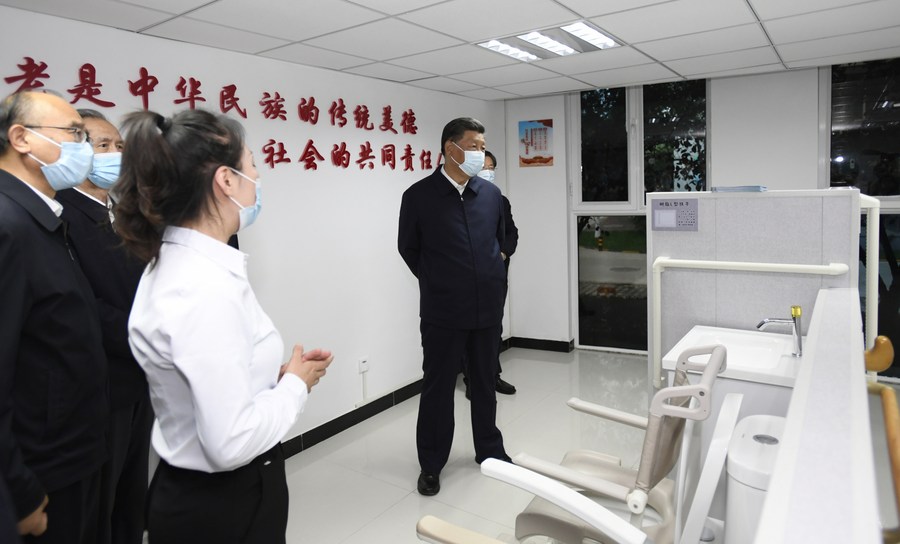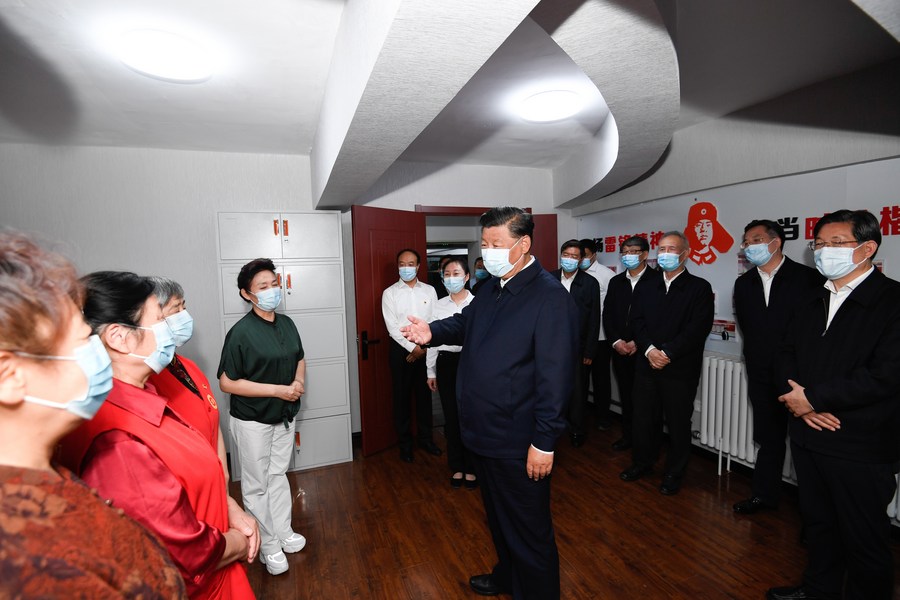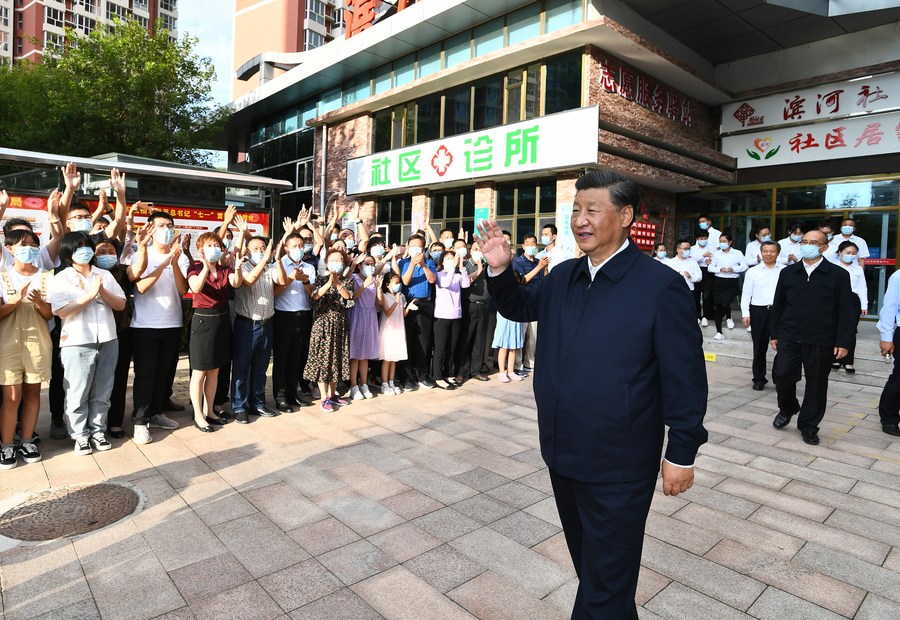Xi Focus: China develops community-based home care services for elderly
 Chinese President Xi Jinping checks projects while visiting Binhe community service center for elderly home-care in Chengde, north China's Hebei Province, Aug. 24, 2021. (Xinhua/Li Xueren)
Chinese President Xi Jinping checks projects while visiting Binhe community service center for elderly home-care in Chengde, north China's Hebei Province, Aug. 24, 2021. (Xinhua/Li Xueren)
SHIJIAZHUANG, Aug. 26 (Xinhua) -- Zhao Hong, a resident of the city of Chengde in north China's Hebei Province, is unable to independently care for himself due to a cerebral infarction. In addition to the help of his daughter, he can now count on workers from a community-based services center that provides elderly home care.
Zhao's daughter used to prepare three meals for him at once and put them in the refrigerator. Knowing that she was very busy, workers with the Center for Home-based Elderly Care Services in the Binhe Community now often come to cook for Zhao.
"They are very reliable and considerate. They came to my home to make fresh dumplings for me. I am extremely grateful to them for their help," Zhao said.
President Xi Jinping, also general secretary of the Communist Party of China (CPC) Central Committee and chairman of the Central Military Commission, visited the center during his inspection tour of Chengde from Monday to Tuesday.
 Chinese President Xi Jinping conducts field research on the elderly care services at Binhe community service center for elderly home care during an inspection tour of Chengde in north China's Hebei Province, Aug. 24, 2021. (Xinhua/Shen Hong)
Chinese President Xi Jinping conducts field research on the elderly care services at Binhe community service center for elderly home care during an inspection tour of Chengde in north China's Hebei Province, Aug. 24, 2021. (Xinhua/Shen Hong)
He said that ensuring happy lives for the elderly is a vital responsibility of Party committees and governments at all levels, and called for efforts to develop all-inclusive elderly care services and improve the networks for community-based services centers providing home care for the elderly.
Established in 2018, the center is run by a home-based care services company and provides services including cultural entertainment, health care, spiritual support and daytime care for the elderly aged 60 and above in the area. The government pays the company an annual fee of 718 yuan (about 111 U.S. dollars) for each elderly person it serves.
The center currently has one nurse and 12 full-time staff members. It also has 230 volunteers, including 48 individuals over the age of 60, who provide services for nearly 1,200 elderly people living in the Binhe Community. Doctors are regularly appointed by contracted hospitals to offer on-site consultations.
"We have input information about the elderly, including their medical history, health status, medication and living needs, into our system. And they can call for help using their mobile terminals, and our workers will reach them to provide timely services," said Xu Jiajie, Party chief of the Binhe Community.
Liu Baochuan, 65, lives in the Haitangyuan neighborhood of Binhe and has several medical conditions, including diabetes and hypertension. Liu is often cared for by center workers, who visit him regularly, taking his blood pressure and providing professional health guidance.
When he was ill and hospitalized, center workers and volunteers took turns to accompany him and take care of him in the hospital.
"The newly retired locals help the older or disabled elderly, and the length of our volunteer services can be deposited in a 'Time Bank.' When we need help in the future, we will get the services of other volunteers," said Hu Xiying, a 67-year-old volunteer living in Binhe.
 Chinese President Xi Jinping waves to staff members, volunteer representatives and community residents while conducting field research at Binhe community service center for elderly home care during an inspection tour of Chengde in north China's Hebei Province, Aug. 24, 2021. (Xinhua/Xie Huanchi)
Chinese President Xi Jinping waves to staff members, volunteer representatives and community residents while conducting field research at Binhe community service center for elderly home care during an inspection tour of Chengde in north China's Hebei Province, Aug. 24, 2021. (Xinhua/Xie Huanchi)
Xi, who pays great attention to the development of elderly care services, has often visited elderly care services facilities during his domestic inspection tours.
When he visited the Center for Home-based Elderly Care Services in the Binhe Community, he also urged efforts to build a system that integrates home, community and healthcare facilities.
In 2020, there were 264 million people in China aged 60 or above, accounting for 18.7 percent of the total population. By 2025, the country's elderly population over the age of 60 is expected to exceed 300 million.
As of 2020, there are 38,000 care institutions and 280,000 community care facilities for the elderly across the country, with a total of 8.2 million beds.